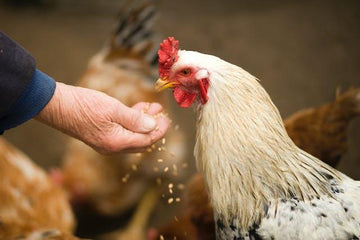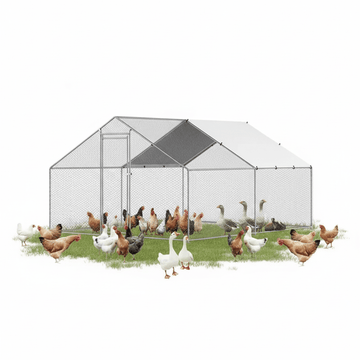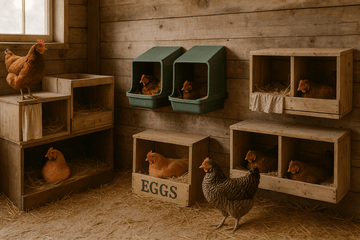Raising chickens is both a rewarding and complex endeavor, particularly when it comes to ensuring they receive proper nutrition. Chicken feed plays a pivotal role in maintaining the health, productivity, and wellbeing of your flock. Understanding the intricacies of chicken feed and nutrition is essential for anyone looking to raise chickens, whether on a small scale or commercially.
Understanding Chicken Feed
Types of Chicken Feed
There are several types of chicken feed available, each designed to meet specific nutritional needs at different stages of a chicken's life. Starter feeds, grower feeds, and layer feeds are among the most common, catering respectively to chicks, growing chickens, and egg-laying hens.
Choosing the Right Feed for Your Chickens
Selecting the right type of feed is crucial. Factors to consider include the chicken's age, purpose (meat vs. egg production), and any specific health needs. Organic, non-GMO, and conventional feeds are options available to poultry farmers, each with its pros and cons.
Essential Nutrients in Chicken Feed
Proteins and Amino Acids
Proteins are the building blocks of growth and development in chickens. Amino acids like lysine and methionine are critical for feather development and overall health.
Vitamins
Vitamins A, D, E, and K, along with B-complex vitamins, are essential for the immune system, bone health, and egg production.
Minerals
Calcium, phosphorus, and other minerals are vital for strong eggshells and skeletal structure.
Special Dietary Considerations
Life Stage Formulations
Feeds are formulated to support chickens at various life stages. For example, layer feed is high in calcium for egg production, while starter feed is higher in protein for growth.
Supplements and Additives
While commercial feeds are formulated to be complete, certain situations may require supplements, such as additional calcium or grit for digestion.
Feeding Practices for Optimal Health
Feeding Schedule
Consistent feeding schedules and proper feed amounts are key to preventing obesity and ensuring optimal health.
Clean Water Access
Access to clean water is as crucial as the feed itself. Water intake affects feed digestion and overall health.
Common Feeding Mistakes to Avoid
Overfeeding and underfeeding can lead to health issues. Understanding the nutritional content of feeds helps prevent these mistakes.
DIY Chicken Feed Options
For those inclined, creating your own chicken feed can be a way to control the quality and variety of nutrients your chickens receive.
Environmental Considerations
Sustainable feeding practices, such as incorporating kitchen scraps or growing your own chicken feed, can reduce environmental impact.
Cost-Effective Feeding Strategies
Bulk buying, proper storage, and choosing the right feed type can help manage feeding costs without compromising on quality.
Future Trends in Chicken Feed
Innovations in feed formulation, such as insect-based proteins and probiotics, are on the rise, offering more sustainable and health-promoting options.
Conclusion
Proper understanding and management of chicken feed and nutrition are fundamental to raising healthy, productive chickens. By choosing the right feed, adhering to best feeding practices, and staying informed about nutritional needs and innovations, you can ensure your flock thrives.
FAQs
1. Can I feed my chickens kitchen scraps?
Yes, in moderation. Kitchen scraps can supplement your chickens' diet but should not replace their main feed. Avoid toxic foods like avocado, chocolate, and caffeine.
2. How often should I change the water for my chickens?
Fresh, clean water should be available at all times. Change the water daily to prevent contamination and disease.
3. What is the best feed for egg-laying hens?
Layer feed is formulated specifically for egg-laying hens, with higher calcium content to support eggshell strength.
4. Can I make my own chicken feed at home?
Yes, it's possible to create your own chicken feed, but it requires careful balancing of nutrients to ensure it meets all your chickens' dietary needs.
5. Are there any natural supplements I can add to my chickens' diet?
Natural supplements like apple cider vinegar (for digestive health), garlic (for immune support), and oyster shell (for additional calcium) can be beneficial.





